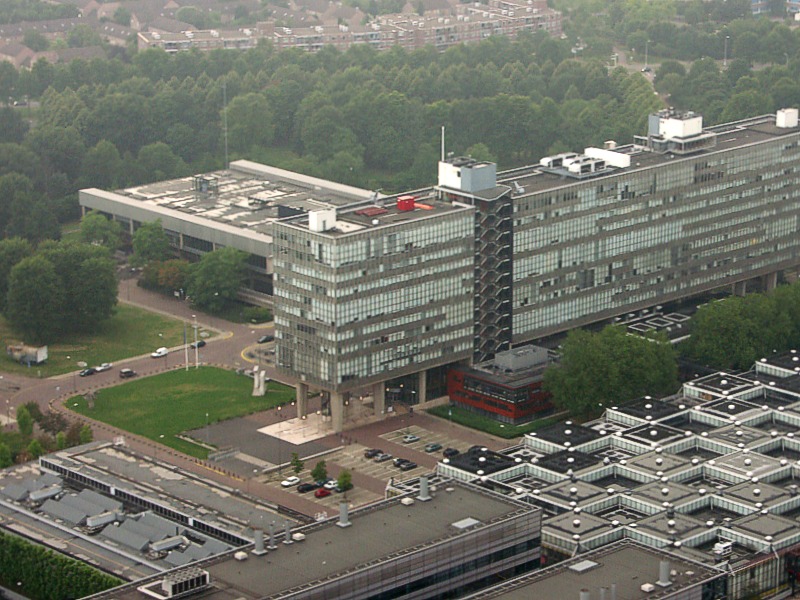Would you love to make an impact with your research and inspire students? Work at a true campus university with a pleasant atmosphere? And immediately appoint your own PhD candidate? Then you will find this role an excellent fit
The position is in the group of Applied Mechanics and Data Analysis of the Faculty of Engineering Technology (ET). This enthusiastic group consists of 8 researchers and teachers of various levels. Their research focuses on developing new methods for the dynamics, nonlinear mechanics, stochastic modelling, machine/deep learning, model reduction, optimization and control of robots and manufacturing/production processes. As an assistant professor you will become an expert in control topics for industrial applications, and for the other topics you will collaborate with fellow experts.
This research aims to initiate, design and develop technical solutions for societal problems of today and tomorrow. Such technology involves “Automated intelligent systems” in which a mechanical system/materials are optimized and personalized. Application areas are e.g. high-tech equipment, smart industry, additive manufacturing, automated process control, etc.
The modelling and fundamental understanding of dynamical systems and robotics are essential in the development of such automated systems. In particular the stochastic model-driven or model-free control is the main prerequisite for achieving success in this area. Models are becoming computationally more demanding, whereas the industry requirements on the real time computations are increasing. Hence, the fundamental and applied research in the area of stochastic control and dynamical systems is one of the key factors we would like as a group to develop further.
About the job
As an assistant professor you will work in the Applied Mechanics and Data Analysis (AMDA) group, the Department Mechanics of Solids Surfaces and Systems (MS3), Faculty of Engineering Technology. Here you will develop ground-breaking research projects in close collaboration with your colleagues and the industry. The Applied Mechanics and Data Analysis group is an interdisciplinary group that focuses on the fundamental and applied research related to flexible multibody dynamics/nonlinear mechanics and artificial intelligence with applications in the field of manufacturing of materials and industrial robotics.
As an AMDA member, you will be participating in teaching activities in the Bachelor programme of Mechanical engineering and the Master programme of Robotics and Mechanical engineering. You will supervise students in their graduation assignments, and you will contribute towards the supervision of the PhD candidate(s).
In this role you will also have the opportunity to directly appoint your own PhD. And in time, there are opportunities to grow into the role of Associate Professor. All your work takes place on the beautiful, green campus in Twente.
Want to know more about the UT? take a look here: green campus University of Twente
Please note that this vacancy is only open to female scientists. This is part of the University of Twente’s strategy to increase the proportion of women among its faculty and to create a working environment that is diverse and inclusive and supportive of excellence in research and teaching.
YOUR PROFILE
A PhD degree with background in Applied Mathematics/Mechanical Engineering, Robotics, Mechatronics, Systems and Control, or Scientific Computing. The knowledge on (stochastic) control is required. Machine/deep learning knowledge is desirable.
Experience in research, which is apparent from publications in reputable academic journals, presentations in international scientific conferences and other academic activities;
A team player who proactively searches collaboration with the other fields within the department Mechanics of Solids Surfaces and Systems (MS3) and within the robotics community at the University of Twente
Affinity for collaboration with the Dutch and European high-tech industry and with government agencies that are involved in high-tech systems;
Experience in teaching in the sketched research field and you hold a University Teaching Qualification (UTQ) for Dutch Universities, a similar qualification, or are willing to obtain this;
Good communication skills and an excellent command of English.
OUR OFFER
We offer an excellent and stimulating scientific environment with an attractive campus and lots of facilities for sports and leisure. The university provides a dynamic ecosystem with enthusiastic colleagues in which internationalization is an important part of the strategic agenda.
We offer you:
A fulltime position for 1 year, with the prospect of a permanent position after a positive evaluation;
A gross salary between € 3.807,- and € 5.922,- per month, depending on experience and qualifications, a 30% tax ruling option and solid pension scheme;
A holiday allowance of 8% of the gross annual salary and a year-end bonus of 8.3%;
Professional and personal development programs;
A high degree of responsibility and independence, while collaborating with close colleagues, researchers and other university staff is strongly encouraged.
A start-up package that includes funding for the recruitment of 1 PhD that can help in kickstarting your research;
A family-friendly institution that offers parental leave (both paid and unpaid) and career support for partners.
INFORMATION AND APPLICATION
For additional information regarding this position, please contact Prof.dr.ing. B. Rosic, email: b.rosic@utwente.nl. You can submit your application, including:
a letter with your teaching and research motivation
CV (with a list of publications and at least 2 references)
before January, 30th, 2022 by using the link below.
ABOUT THE ORGANIZATION
The Faculty of Engineering Technology (ET) engages in education and research of Mechanical Engineering, Civil Engineering and Industrial Design Engineering. We enable society and industry to innovate and create value using efficient, solid and sustainable technology. We are part of a ‘people-first' university of technology, taking our place as an internationally leading center for smart production, processes and devices in five domains: Health Technology, Maintenance, Smart Regions, Smart Industry and Sustainable Resources. Our faculty is home to about 2,900 Bachelor's and Master's students, 550 employees and 150 PhD candidates. Our educational and research programmes are closely connected with UT research institutes Mesa+ Institute, TechMed Center and Digital Society Institute.
Apply


